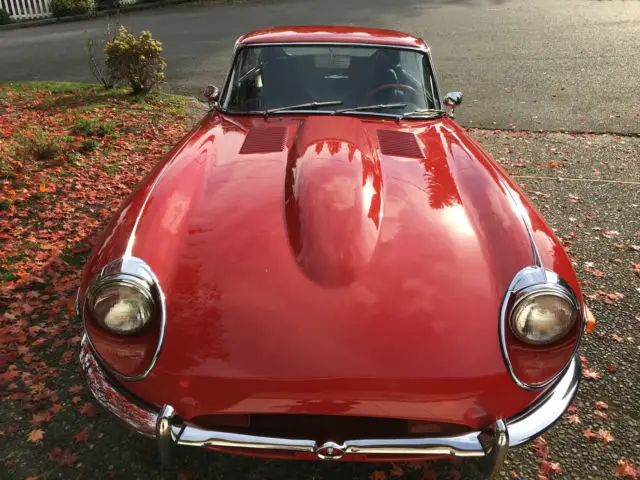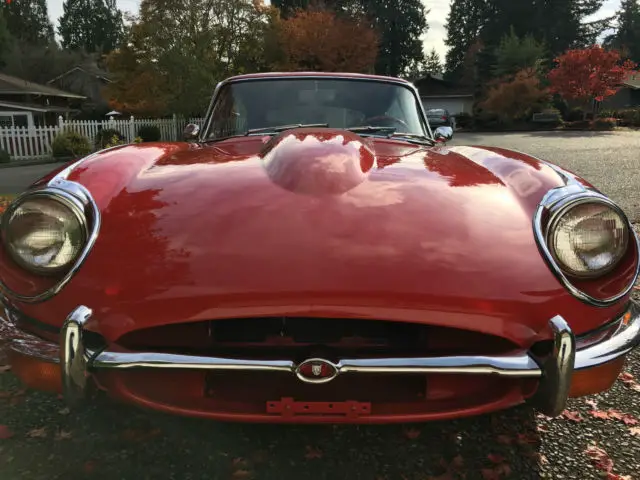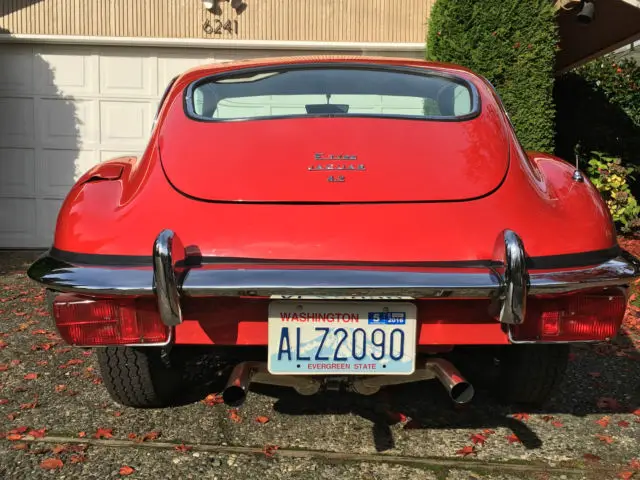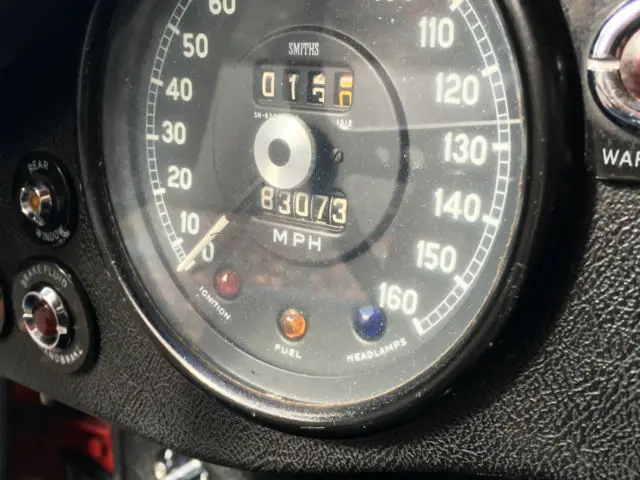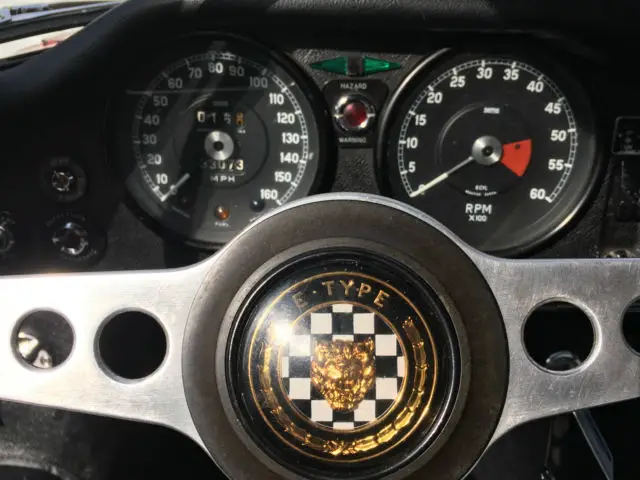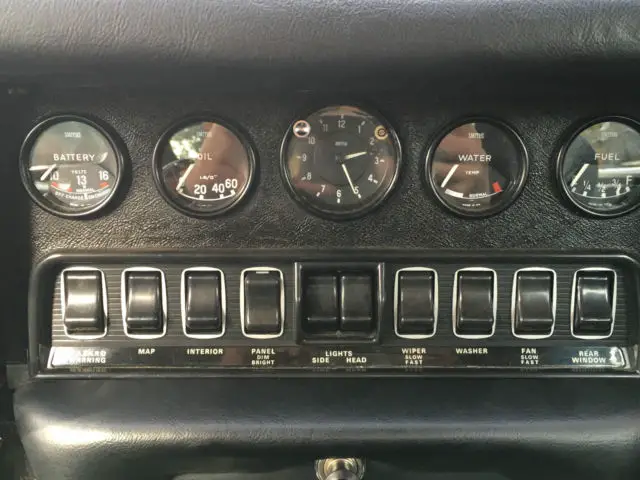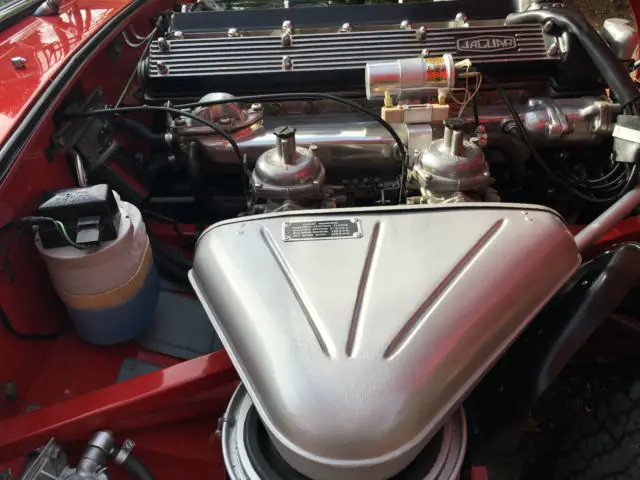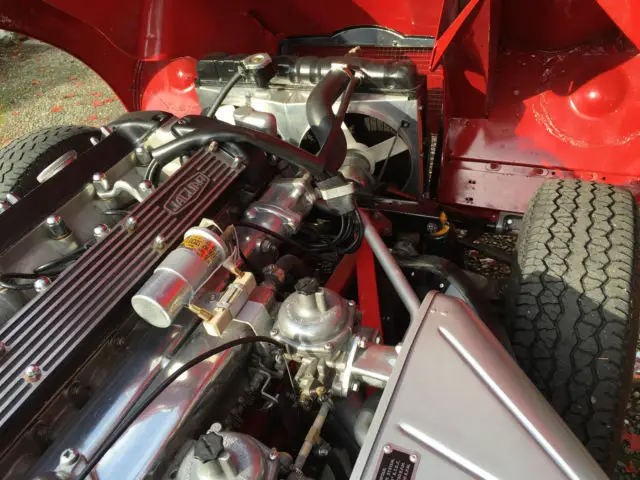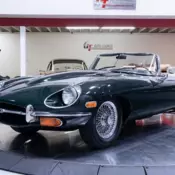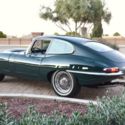1969 E-Type Series II 4.2L Coupe - stunning!
| Make: | Jaguar |
| Model: | E-Type |
| SubModel: | Coupe |
| Type: | Convertible |
| Year: | 1969 |
| Mileage: | 83,073 |
| VIN: | 1R26912 |
| Color: | Red |
| Engine: | 4.2L in-line 6-cylinder |
| Cylinders: | 6 |
| Fuel: | Gasoline |
| Transmission: | Manual |
| Drive type: | RWD |
| Interior color: | Black |
| Vehicle Title: | Clear |
| Item location: | Bellevue, Washington, United States |
1969 Jaguar E-Type Coupe Additional Info:
The Jaguar XKE is a British sports car, hich was manufactured by Jaguar Cars Ltd between 1961 and 1975. Its combination of beauty, igh performance, nd competitive pricing established the marque as an icon of 1960s motoring. At a time when most cars had drum brakes, ive rear axles, nd mediocre performance, he E-Type sprang on the scene with 150 mph and a sub-7 second 0-60 time, onocoque construction, isc brakes, rack and pinion steering, ndependent front and rear suspension, nd unrivaled looks. In fact, he E-Type was based on Jaguar’s own famed racer, he Type D, hich had won the world’s most prestigious sports-car race three consecutive years (1955-1957) and, s such, t was the first production vehicle not to use a separate body bolted onto a chassis, instead employing the racing design of a body tub attached to a tubular framework, ith the engine bolted directly to the framework.
The E-Type was initially designed and shown to the public as a rear-wheel drive grand tourer in two-seater coupé form and as a two-seater convertible. A “2+2” four-seater version of the coupé, ith a lengthened wheelbase, as released several years later. On its release Enzo Ferrari called it “The most beautiful car ever made”. The Series 1 cars were made from 1961-68, nd then Jaguar made numerous changes and released the Series 2.
The Series 2 introduced a number of design changes, argely due to U.S. design legislation. The most distinctive exterior feature is the absence of the glass headlight covers, wrap-around rear bumper, re-positioned and larger front indicators and tail lights below the bumpers, n enlarged “mouth” which aided cooling, win electric fans, plastic rocker switches in place of the Series I toggle switches, nd a switch from the three SU carburetors used in Series I models to a mere two Stromberg carbs t meet stricter US emissions requirements.
A combination steering lock and ignition key was fitted to the steering column, hich replaced the dash board mounted ignition switch and charismatic push button starter. A new steering column was fitted with a collapsible section in the event of an accident.New seats were fitted which allowed the fitment of head restraints. The interior and dashboard were also redesigned with minor dash changes, ncluding rocker switches on the dash.
The engine is easily identified visually by the change from smooth polished cam covers to a more industrial “ribbed” appearance. It was de-tuned in the US with twin Strombergs and larger valve clearances, ut in the UK retained triple SUs and the much tighter valve clearances. This US-spec engine produced 245 hp, nd air conditioning and power steering were available as factory options. Production according to Robson is 13,490 of all types, ith 4,855 fixed head coupes being made during the period. In 2011, hen Jaguar E-Type had 50th anniversary. Jeremy Clarkson said the Jaguar E-type is the essence of British brilliance.
This example has been completely restored in the bright “Signal” red exterior and brand new black leather interior. The engine and gearbox, suspension, teering, rakes, xhaust and all running gear have been rebuilt to factory-correct standards. The chrome and glass are both excellent and the car drives like new. The engine is the correct 4.2 liter in-line six, as the correct Stromberg carbs as specified for the US market and runs very well, ith no leaks or smoke. It has 83k miles on the odometer and is believed to be the correct original miles. The car has had longtime ownership for the past 20+ years and is “turn-key”. It can be inspected in the Seattle area by appointment.
